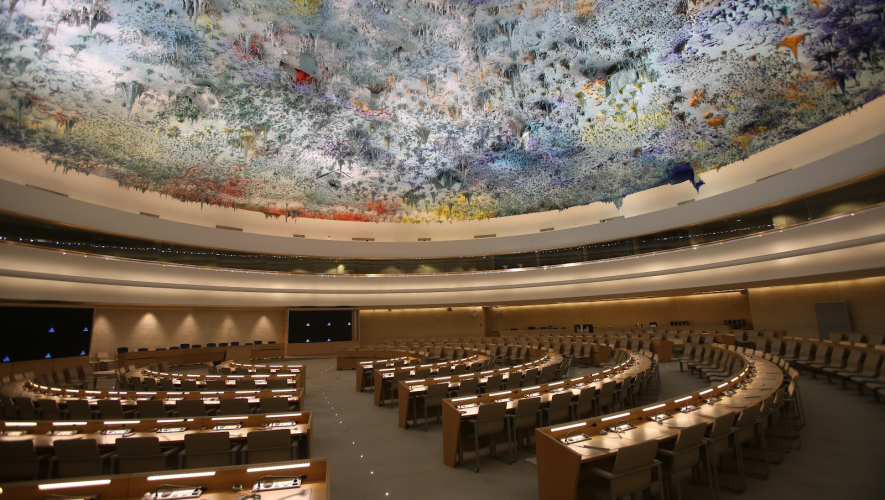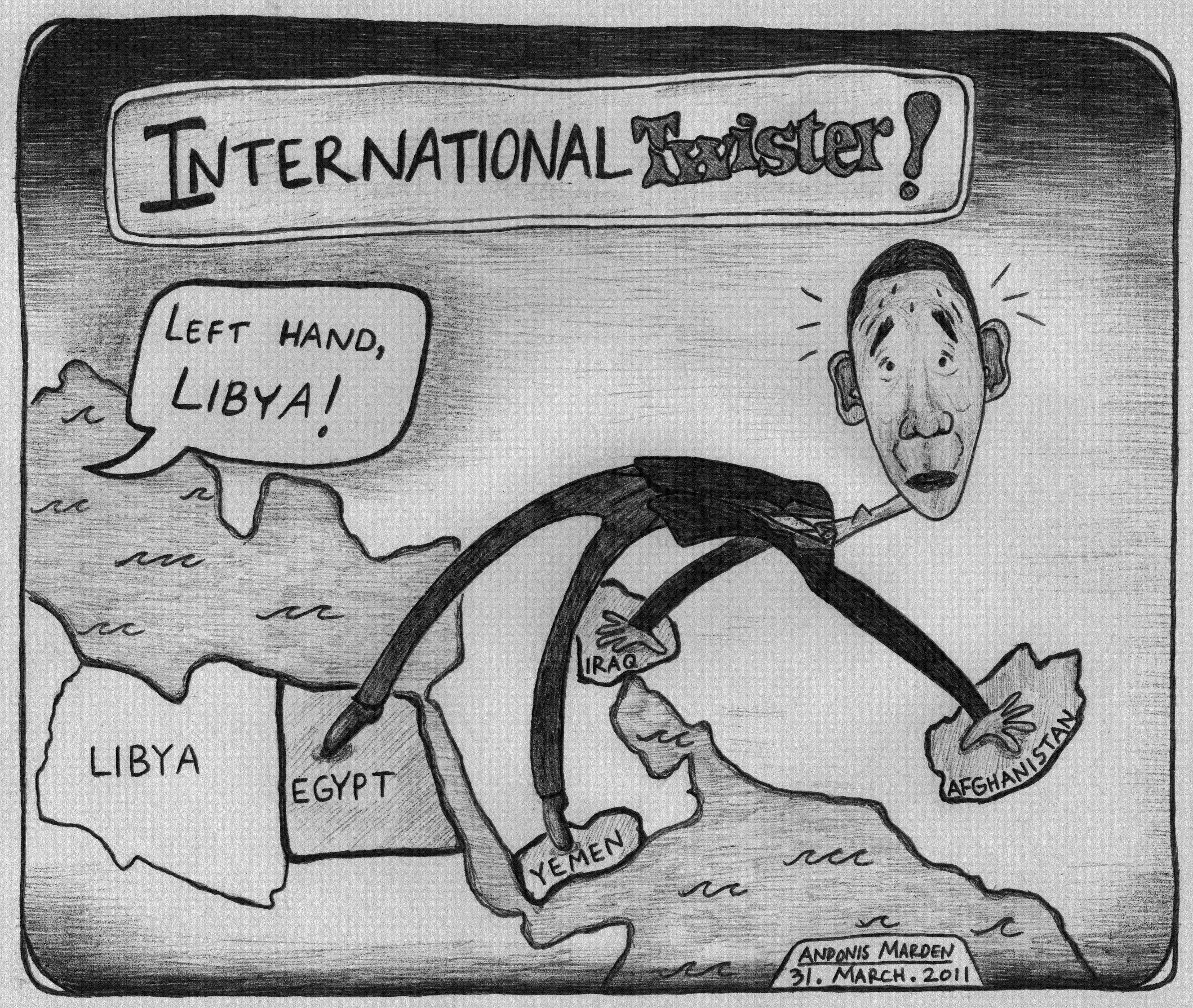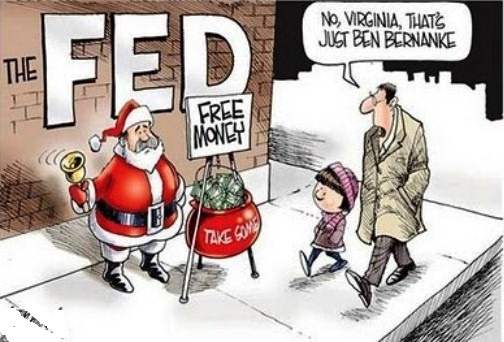On June 18, 2018, US ambassador to the United Nations Nikki Haley stood beside Secretary of State Mike Pompeo at the State Department to announce the US’ withdrawal from the UN Human Rights Council (HRC). Haley spoke of the hypocrisy of countries with abhorrent human rights records sitting on the Council and criticized its “chronic bias against Israel.” “That is why,” Haley stated, “the United States is withdrawing from the Human Rights Council, an organization that is not worthy of its name.”
The HRC is the leading international body responsible for monitoring and addressing thematic and situational issues of human rights around the globe. It comprises forty-seven Member States elected by the UN General Assembly. The United States was a member from its election in 2009 until June 2018, when Pompeo and Haley announced the withdrawal.
This news shocked many, with human rights defenders all over the world lamenting what they perceived as the US retreating from its commitment to protecting human rights. This was just one instance of the Trump administration pulling back from multilateral engagements, following its controversial withdrawal from the long-sought Paris Climate Accords in June 2017 and its abandonment of the Joint Comprehensive Plan of Action, also known as the Iran Nuclear Deal, in May 2018.
However, even before the election of Donald Trump, the United States—which Ambassador Haley touted as having a “strong legacy as a champion of human rights”—has often shied away from global human rights commitments. The US has ratified only three of the nine core international human rights treaties. Three of the conventions to which the US is not a party have otherwise achieved near-universal ratification. It is the only UN Member State that has not ratified the Convention on the Rights of the Child. It is one of only a handful of countries to not have ratified the Convention on the Elimination of all Forms of Discrimination Against Women and the Convention on Economic, Social, and Cultural Rights.
Despite the historical failure by the United States to commit to many internationally recognized human rights agreements and the Trump administration’s general aversion to multilateral engagement, Haley and Pompeo’s reasons for withdrawing from the HRC are not completely unfounded. However, the US’s withdrawal will only weaken its ability to positively influence international human rights, and giving up this seat at the table will only diminish the US’ political position globally by limiting its ability to advocate for its strategic and human rights priorities on the world stage.
Further, the Trump administration’s decision to withdraw demonstrates its failure to understand a hard-to-swallow, yet crucial trade-off that categorizes multilateral systems: that operating within an imperfect system often is the only way to improve that system, and walking away because one does not get exactly what they want is counterintuitive to the achievement of one’s goals.
The “Israel” Agenda Item
Since the early twentieth century, the US government has been a strong supporter of the establishment of a sovereign state which would be a homeland for the Jewish people. Since Israel’s conception in 1948, the US and Israel have had a strong bilateral relationship. Israel has long been “America’s most reliable partner in the Middle East.” Preserving and protecting the State of Israel continues to be one of America’s foreign policy priorities, as a strong Israel is central to US economic and security interests in the region. To this end, the US provides over three billion dollars of Foreign Military Financing to Israel annually. As such, the perceived HRC bias against Israel was a significant factor influencing America’s withdrawal.
The claim by Ambassador Haley and the Trump administration that the HRC is disproportionately critical of Israel is not entirely unfounded. The Israeli–Palestinian conflict is the only global human rights issue that has a dedicated item under the institutional HRC Agenda.
The HRC divides its work into ten agenda items. The majority of the Council’s resolutions are thematic, addressing human rights issues in a way that is general and not specific to one country. The Council occasionally passes country-specific resolutions, either to address human rights violations or to assist a specific country. Country-specific resolutions typically fall under either Agenda Item 4, entitled “Human rights situations that require the Council’s attention” or Agenda Item 10, “Technical assistance and capacity building.”
However, such is not the case with resolutions regarding Israel and the Occupied Palestinian Territories. Agenda Item 7 is dedicated solely to human rights violations in the Occupied Palestinian Territories. Critics of the HRC—including the Trump administration—claim that this distinction amounts to an institutional bias against Israel. Though this procedural distinction may not seem particularly substantive, one consequence is that the volume of HRC resolutions concerning Israel and the Occupied Palestinian Territories far outnumber those concerning other human rights violations.
Since 2006, there have been eighty-one resolutions passed by the Human Rights Council regarding the Occupied Palestinian Territories, accounting for 37 percent of all HRC country-specific resolutions. The number of resolutions regarding Israeli human rights violations outweighs the combined number of resolutions regarding the conflicts in Syria (thirty), Mali (twenty-four), and Myanmar (twenty-two).
Additionally, the human rights situation in the Occupied Palestinian Territories has been the subject of more HRC Special Sessions than any other issue. A Special Session is a convening of the HRC outside of its three annual meetings, addressing a specific human rights situation that is particularly pressing or urgent. Of the twenty-eight Special Sessions convened since 2006, seven have been called specifically to address the human rights situation in Occupied Palestinian Territories.
These disparities suggest that Israel and the situation in the Occupied Palestinian Territories are the subject of more scrutiny than other international human rights crises. There is no doubt that Palestinian human rights deserve significant international attention; however, the fairness of having a dedicated Agenda Item when all other human rights crises are grouped under a single Item is questionable. The resulting perception that the Palestinian crisis greatly outweighs other humanitarian problems is a disservice to persons experiencing damaging and protracted conditions all over the world.
Though merely an administrative distinction, it is reasonable that Israel and the US might view this differentiation as an anti-Israel bias. Such an affront to the US’s strongest and most strategic ally in the Middle East is unacceptable in the eyes of the Trump administration.
Human Rights Abusers on the Human Rights Council
In the most recent HRC Election on October 17, 2019, Venezuela won membership. Venezuela is facing one of the worst humanitarian crises in the world, exacerbated sharply by the oppressive policies and actions of the Maduro regime, which has systematically eroded democratic institutions and whose legitimacy is strongly contested domestically and globally. Michelle Bachelet, who serves as the High Commissioner for Human Rights, reported that the Maduro administration is responsible for extrajudicial killings, torture, political imprisonment, and a host of other human rights abuses.
This is only the most recent occurrence of a country being elected to the HRC while its government commits egregious human rights abuses. In her statement concerning the US withdrawal, Haley also singled out “human rights abusers” on the Council, including Cuba, China, and the Democratic Republic of the Congo. Other abusive states such as Saudi Arabia hold membership on the Council but were not mentioned in the US statement. Haley and Pompeo have asserted that the membership of these states is hypocritical and causes the Council to “cover up” some of the world’s most serious human rights abuses. Furthermore, the United States has committed a significant number of human rights abuses domestically and internationally over the decades, abuses which are largely under-reported or swept under the rug.
It is not unreasonable to be critical that governments that actively commit human rights atrocities are helping determine how and which human rights crises are addressed. In a perfect world, only those that demonstrated respect for promoting and protecting human rights would be tasked with the immense responsibility of doing so on a global scale. But including only “good” countries on the Council could undermine the legitimacy and power of the institution. With no seat at the table and no opportunity to give input and negotiate, governments with questionable human rights records would have less reason to follow any Council directives—they could easily claim that they were not responsible for carrying out HRC resolutions if they were excluded from the process.
This does not mean that the Council shouldn’t be reformed to address the problem of human rights abusers holding membership. Many human rights advocates were deeply upset when Venezuela was elected, as they were when Saudi Arabia won its seat. But the US logic of “if X is on the Council then I am not” is counterproductive to improving the effectiveness of the Council. More time is needed to develop effective reform measures that would hold Council members accountable for their own actions on human rights while preserving the inclusive nature of the body.
The Need for Continued US Engagement
The United Nations Human Rights Council is an imperfect entity. Like any other international institution, it faces many challenges that come with the complex and messy business of engaging a variety of stakeholders, all with different objectives, in achieving a common task: strengthening the promotion and protection of human rights around the globe. The United Nations is notorious for its bureaucracy and resistance to reform. Any systemic change is contingent upon the agreement of a certain majority of Member States, and reaching an agreement in such a crowded and diverse field is time-consuming and complex. The United States is just one actor that tried and failed at a task many before it had attempted: to push for meaningful reform in a deeply bureaucratic UN.
However, the US walking away from the table demonstrates this administration’s fundamental misunderstanding of how to effectively engage at a multilateral level. After just one year of reform efforts (the blink of an eye in the UN system), the US abandoned the Council. Meaningful, lasting change cannot be accomplished in the UN system without patience and persistence.
The US withdrawal from the Council will only slow progress on its two stated objectives for reforming it. With the US no longer a voting member, the HRC is more likely to criticize the actions of Israel and pass more resolutions to this effect. In the year following the US withdrawal, the HRC passed the exact same number of resolutions concerning Israel that it had passed every year while the US was a member of the Council. The only effect the US withdrawal had on the HRC’s “Israel bias” was allowing the resolutions to be passed with less opposition.
The same logic applies to the situation of human rights abusers on the Council. The US withdrawal only served to remove the voice of a so-called “champion” of human rights from the Council. Now so-called “abusers” have more leeway to stall efforts seeking to hold them accountable for their human rights records, or to threaten their membership. The US can no longer vote on any of the Council’s reform efforts that would work towards the objectives this administration so outspokenly desires.
And therein lies an important lesson for this administration, and for the world. Multilateralism is about compromise. In a room full of stakeholders, all with different backgrounds, perspectives, and goals, nobody will ever get exactly what they want every time—and they shouldn’t. Multilateralism puts the common good above the good of one party. It forces us to accept imperfect solutions, but the alternative is no solution whatsoever. There is no deal, no international agreement, no reform that is perfect, but without such compromises being reached, there would be no framework to build upon in order to create something better.



